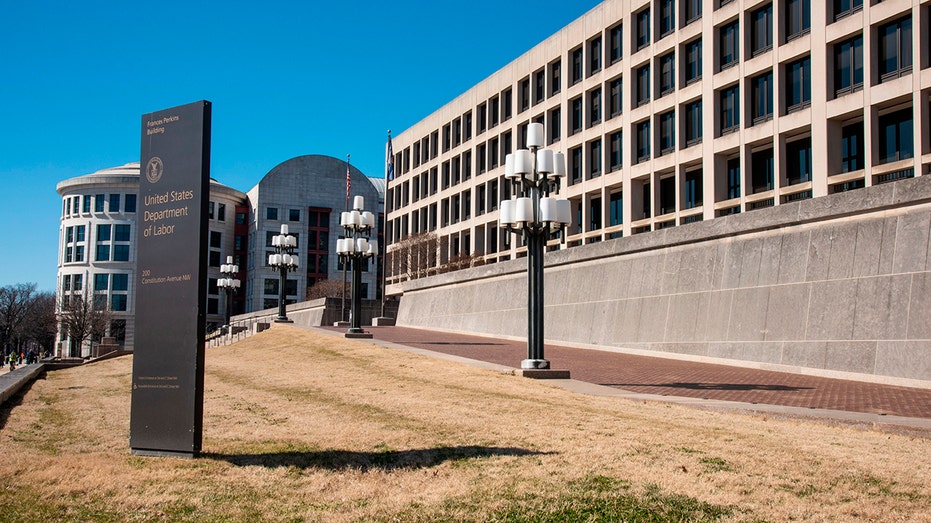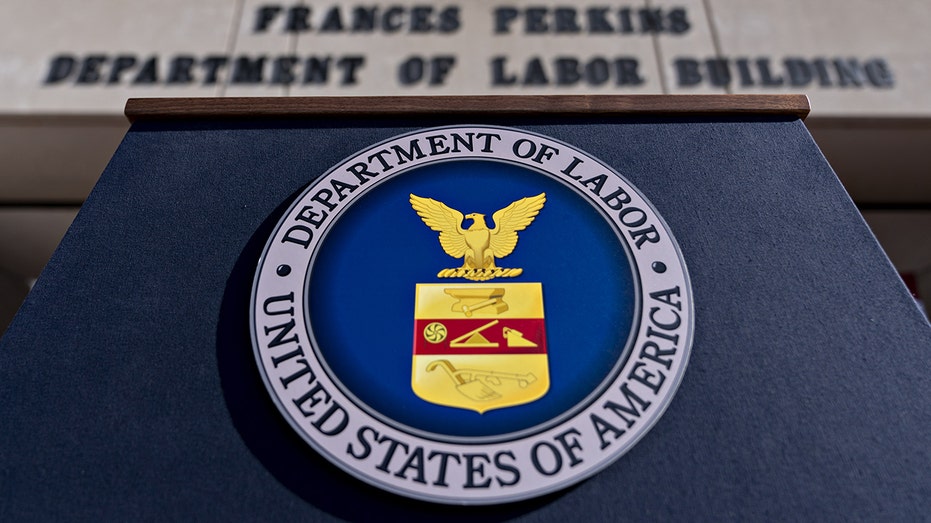Department of Labor proposes rule to add political directives to retirement savings
Rule will allegedly coerce workers and businesses into supporting progressive policies
While Democrats in Congress negotiate over trillions of dollars in new spending, the Biden administration is quietly advancing its agenda through regulation. Witness a little-noticed proposed rule last week by the Labor Department that will add new political directives to your retirement savings.
The administration says the rule will make it easier for retirement plans to offer 401(k) funds focused on ESG (environmental, social and governance) objectives. In fact, the rule will coerce workers and businesses into supporting progressive policies.
An important Trump Labor rule last fall reinforced that the Employee Retirement Income Security Act (Erisa) requires retirement plan fiduciaries to act "solely in the interest" of participants. The rule prevented pension plans and asset managers from considering ESG factors like climate, workforce diversity and political donations unless they had a "material effect on the return and risk of an investment." The rule effectively barred plans from placing workers who don’t select a 401(k) fund option into a default ESG fund.

This photo shows the Department of Labor building, Washington, D.C. A recent proposed rule by the Department of Labor would add political directives to retirement savings. (Robert Knopes/Education Images/Universal Images Group via Getty Images / Getty Images)
BIDEN MAY CUT FREE COMMUNITY COLLEGE FROM ECONOMIC PACKAGE
The Biden DOL plans to scrap the Trump rule while putting retirement sponsors and asset managers on notice that they have a fiduciary duty to include ESG in investment decisions. The proposed rule "makes clear that climate change and other ESG factors are often material" and thus in many instances should be considered "in the assessment of investment risks and returns."
A fiduciary’s duty may "often require an evaluation of the effect of climate change and/or government policy changes" such as electric vehicle mandates on an investment, the rule-making says. Retirement plan sponsors won’t merely be allowed to prioritize climate and social factors in how they invest. They could be sued if they don’t. Workers won’t get much say because plans won’t be required "to solicit preferences" on ESG.
The Biden DOL claims that ESG factors yield higher returns. "Many compelling studies show the material financial benefits of diverse and inclusive workplaces," DOL writes. But it also acknowledges that "findings vary," and theoretical ESG benefits don’t necessarily translate into better financial performance.
Many positive ESG studies confuse correlation with causation. Some ESG funds have recently performed better than broader stock indexes because they are weighted heavily toward Big Tech companies whose stock values have soared. But these funds may also carry more financial risk.
Asset managers like BlackRock are pushing to create ESG 401(k) funds in part because they can charge higher fees. According to Morningstar, the asset-weighted average expense ratio of U.S. "sustainable" funds was 0.61% in 2020 compared to 0.41% for all open-ended mutual and exchange-traded funds and 0.12% for passive funds. This difference can reduce retirement savings by tens of thousands of dollars over a few decades.

The U.S. Department of Labor seal hangs on a podium outside the headquarters in Washington, D.C. in August 2019. Recently, the Department of Labor under the Biden Administration is reportedly trying to stop a Trump labor rule. (Andrew Harrer/Bloomberg via Getty Images / Getty Images)
CLICK HERE TO READ MORE ON FOX BUSINESS
The Biden rule would let plan sponsors enroll workers in ESG 401(k) funds as the default, so workers could unknowingly end up paying higher fees. It also threatens retirement plan sponsors with legal liability if they don’t support progressive shareholder resolutions, such as those requiring companies to reduce CO2 emissions or disclose political donations.
Many small pension plans abstain from proxy votes because performing the required due diligence would be inordinately expensive. Some also want to avoid political controversy. But DOL comes close to demanding that pension funds pick a political side, and you know which side that is.
"Voting proxies are a crucial lever in ensuring that shareholders’ interests, as the company’s owners, are protected," DOL says. "Abstaining from a vote is not a neutral act" since it "could determine whether a particular matter or proposal is approved."
CLICK HERE TO GET FOX BUSINESS ON THE GO
DOL says small plans can reduce their costs by relying on the recommendations of proxy advisers that happen to be the left-leaning proxy duopolists Glass Lewis and Institutional Shareholder Services. Both also provide ESG research services, so the DOL rule will boost their business.
All of this amounts to a backdoor rewrite of Erisa, one of the better laws of the last 50 years. Progressives are moving across the Biden administration to steer private capital to implement an agenda they can’t pass through Congress. Your savings will be conscripted to advance the progressive agenda, whether you like it or not.




















